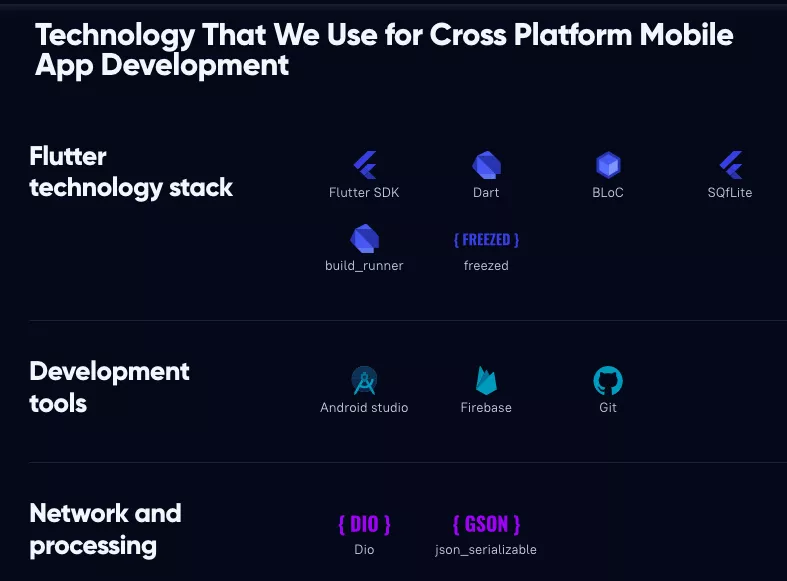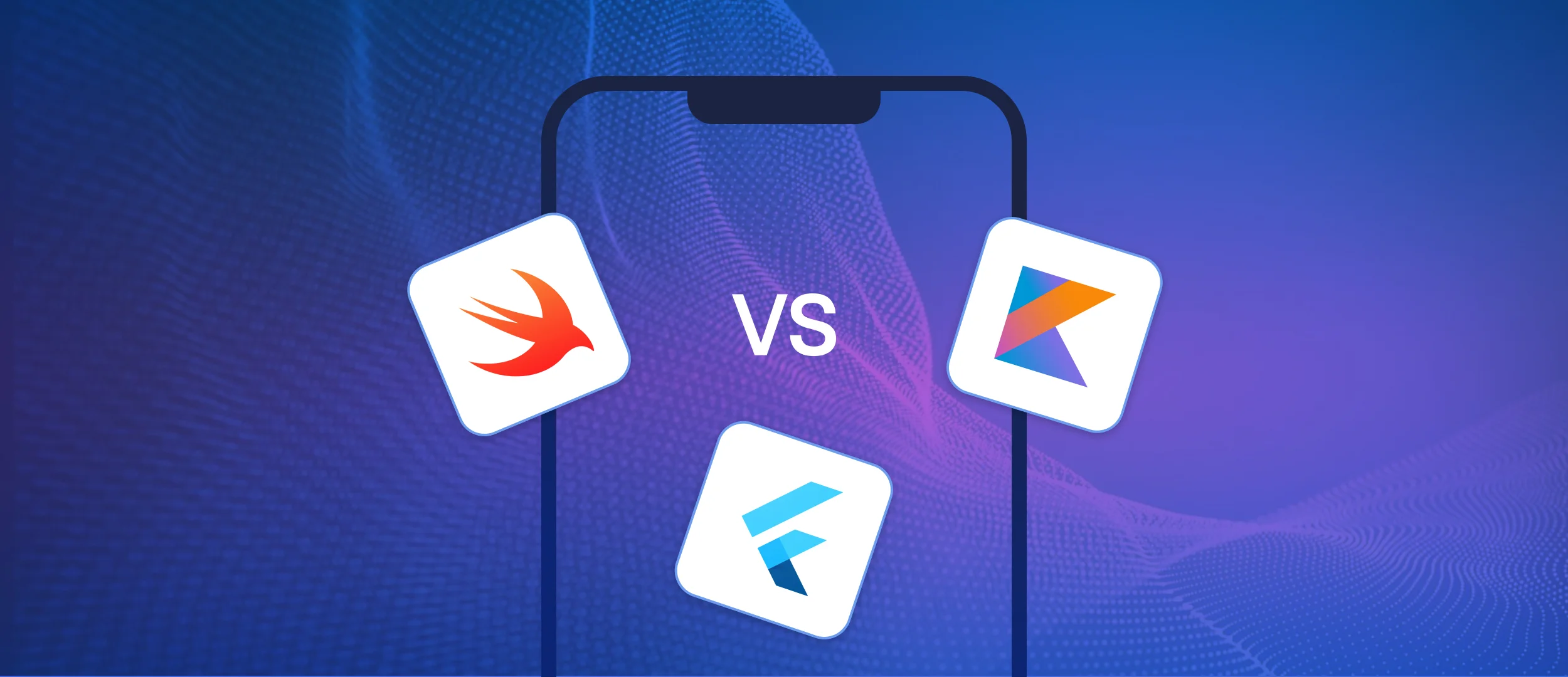
When planning a cross-platform app, one of the first questions that comes to mind is, how much will it cost? The answer depends on factors like app complexity, development stages, and additional features. For businesses that want to budget well, it’s important to understand the main costs. This helps avoid unexpected expenses later on.
This article dives deep into the factors shaping cross-platform app development cost. We’ll walk you through the stages of development, compare costs by app type, and explore strategies to minimize expenses without compromising quality. You’ll also find real-world examples from our experience in delivering cost-effective, high-performance cross-platform apps.
By the end, you will understand what affects development costs and get practical tips to make smart choices for your business.
Stfalcon has been developing software for our clients in Europe and the USA since 2009. We have vast experience building cross platform apps for different industries that meet complex business needs and allow budget optimization. Our specialists are always ready to consult you on the costs of your future cross-platform app project.
How Do You Calculate Cross-Platform Mobile App Development Cost
There is no short answer to how much does a cross-platform mobile application cost, as the prices may easily range from $30k to $200k or even more. It depends on factors like the complexity, the type of app, and the features you wish to see in your solution.
To get a more or less accurate price estimation, you can use an online price calculator, which will give you a basic idea of how much your project may cost, considering the platform and basic features. Still, to get the full picture, you will need to consider the following factors as well:
- design complexity and number of screens
- the number and intricacy of functions and features
- development process details
- approach to quality assurance
- database qualities
- 3rd party integrations
- security protocols implementation (GDPR or HIPAA, for instance)
- development team size and expertise.
Want a web app that does more?
Let's build a solution that's smart, sleek, and powerful.
Alina
Client Manager

The most reliable option, however, is to contact the development company you plan to cooperate with, discuss your idea, and request the project estimation. As an experienced cross-platform mobile development company, we prompt our clients with the most suitable solutions to meet their needs and often save time and money.
What Forms the Price: Cross-Platform App Development Stages
Understanding how to build a cross-platform app makes it easier to estimate your project budget. Let’s take a look at the crucial development stages:
Choosing the right framework and tech stack
The process of developing a cross-platform app depends on the programming language and framework you choose. Today, companies have a wide variety of popular options, like Flutter, React Native, Ionic, Kotlin Multiplatform, and many others. To choose it correctly, you need to realize your business goals, needs, and requirements deeply. Cross-platform app development companies, like Stfalcon, can provide you with the tech stack to ensure the highest productivity and extended features.

Choosing the right framework and tools for development is important because it can help you save money and avoid having to redo work later.
Developing, with multiple versions considered
In cross-platform mobile development, it’s vital to remember to design variable screen sizes and resolutions because you need to create multiple layouts and a comfortable UI for each platform. Android users, for instance, prefer to use screen buttons, while iOS fans operate with touchscreen gestures.
Testing and debugging
When your application is finally built, it’s time to ensure it is working properly, so you need to test and debug it. Different platforms need different testing methods. Make sure to consider all the details and test the application on as many devices and setups as you can. Consider various OS versions, screen sizes, hardware specifications, etc.
Release and deployment
Once the smooth operation of your solution is ensured, it’s time to publish it. To publish and conduct releases of a new mobile solution, you should know the markets and platforms and their requirements and guidelines. That’s why Stfalcon always assists our clients at this stage. As soon as the application is approved, the users can download it, and you can promote and market it.
Support and maintenance
With a cross platform app, you should expect that it will require more updates and maintenance due to the updates of the operating systems, which can be quite different for each system.
The Stfalcon team always offers support to our clients to keep up with changes and updates. You need to regularly test your solution after the platform and mobile system updates to verify its correct operation.
How Much Does It Cost to Build a Cross-Platform Application?
Cross-platform app development cost by the type of app
You already know about multiple factors that influence app development costs. But which of them is decisive, and where do you start calculating?
To make the most basic estimates, you need to think of the complexity of your app. Here are some average prices you can look at, depending on how big and complex your project is:
- Basic: $30 000 +
- Average: $80 000 +
- Enterprise-level: $150 000+
When you work with a software outsourcing company, ask for a clear list of their app development costs before you sign the contract. This will ensure a transparent process and give you the clearest possible idea of how much you will have to pay.
Additional costs that may come up
No matter how meticulously you plan your project’s scope, you should always be prepared for changes and unexpected expenses that are hard to predict initially. Here are some of the examples of what you may face as you go:
- New functionality. During the cross platform mobile app development process, additional needs may arise that you couldn’t predict due to the lack of clear vision at the start. It can be new features or third-party integrations you didn’t see coming.
- Pivoting requirements. Functional or business requirements may change, so it is necessary to analyze them and update the project cost estimate.
- Certifications. Legal needs may require security certifications, for example, according to ISO standards. This can either be included in the initial price or charged additionally.
- Cloud services. The cost of cloud services is hard to predict beyond basic estimates, as it directly depends on the load. In this case, the final price usually becomes clear after the release.
It is wise to think of projects as of having their own life cycles, where anything can change multiple times, and embrace a flexible approach. At Stfalcon, we follow the Agile methodology and are always ready to adapt to dynamic requirements.
Ways to reduce cross platform app development costs
- Set priorities. Define a clear scope for your project and prioritize crucial features.
- Leverage existing tools and technologies. Use open-source tools to reduce licensing costs and integrate pre-built libraries to speed up development.
- Optimize design and user experience. Prioritize user experience to minimize the need for future redesigns. Also, keep your UI simple and intuitive, avoiding complex designs that require extensive development effort.
- Test your app thoroughly. Identify and fix bugs early in the development process to avoid costly fixes later.
- Try outsourcing. Instead of building up or scaling your in-house team, you can delegate the development process to a reliable outsourcing partner and start with a NDA for software development to ensure mutual trust.
Today, outsourcing to a mobile app development agency is one of the easiest ways to get a functional app, ensuring high quality, speed, and a reasonable price. Stfalcon has 16 years of experience in building top-notch software for our clients in different industries. We will be happy to support you through the whole process of creating your app and help you focus on core objectives. Let us give you some highlights of our work to give you the idea of what we can offer.
Stfalcon Cross-Platform Development Cases
BingeBooks
BingeBooks is an online community of authors and book lovers with its website. They turned to Stfalcon for a mobile app for Android and iOS to discover new works, authors, and genres and exchange feedback and recommendations.
To launch the application faster, we focused only on the main functionality — content search, book browsing, and user list management. We chose the cross-platform Flutter framework to simultaneously create solutions for iOS and Android and minimize the development cost. Additionally, Flutter allows extending existing apps to the desktop if necessary.
We used the most common BLoC pattern and Clean Architecture approach to make the app easy to maintain and test. We had to integrate our work with the client’s backend and used Dio for this. The client admired Stfalcon’s work at each stage and even during high-pressure situations.
Restaurant supply chain software solution
This project is under NDA, but we’ll share some slight details.
Partners approached Stfalcon, looking for a development team for one of the largest food delivery companies worldwide. The company's orders surpassed 500 million a year, resulting in communication problems between food suppliers and restaurants. So, they needed an effective tool for B2B orders.
We used a simple but effective method of creating chats with a product catalog and the ability to make orders, both one-time and repeatedly.
Since the network comprises over 500,000 restaurants worldwide, not to mention the suppliers, they all use different communication channels. So, our challenge was integrating as many services as possible to provide seamless user interaction.
The development team opted for Flutter in our development routine as the most up-to-date framework for cross-platform solutions. Ready-made services Shopify.com and Stream.io were chosen for catalog and chat. It allowed us to release an MVP quickly.
Working with the remote partner team was seamless and highly productive because we had the same tech stack. Our year-long cooperation resulted in a superior-quality product for half a million restaurants, and new expertise was gained with the popular Shopify service.
Final Word
A cross-platform application is an ideal means of maximum audience outreach and, consequently, your business growth or startup's successful launch. If you have had some doubts, we hope they are now dispelled.
You already have a general idea of how much does a cross-platform mobile application cost. But if you want to know the exact price for your project, contact a Stfalcon expert for consultation. We know how to provide favorable outcomes for our clients with cross-platform solutions operating on multiple devices. We can do it for you!
FAQ
How much does an AI app cost?
Prices for building an AI-based app start from $40,000 and depend on the type of AI, integration complexity, amount of data, and all the factors that make up the price of a regular app.
How much does it cost to maintain a mobile app?
The costs will vary depending on the size of the team supporting the project and their task scope. For example, Stfalcon offers different support packages according to our client’s needs. The monthly price starts at $1000 and includes infrastructure maintenance, issue monitoring, problem response, updating the app to new OS versions, and more.
Is cross-platform app development more expensive?
Cross-platform development is, in fact, cheaper and faster than native development. You only need to create everything once, and then you can run your app on multiple platforms from a single codebase. This is why at Stfalcon we offer cross-platform solutions as budget-friendly options.

 Read the full case study
Read the full case study
 Read the full case study
Read the full case study


